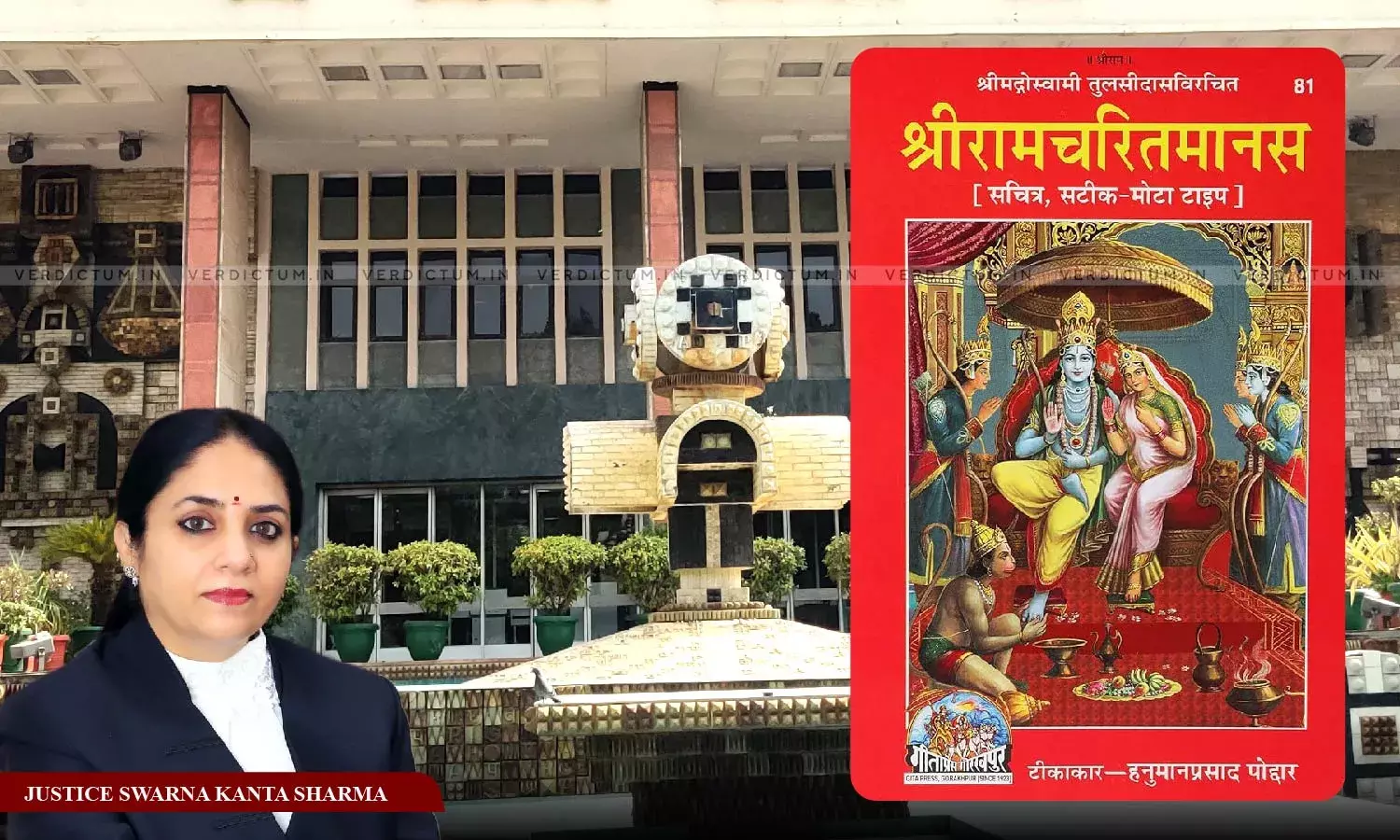Hinduism Does Not Prescribe Ghunghat Or Purdah, Reference To Mata Sita As Pardanashin Is Distortion Of Ramcharitmanas: Delhi HC On Muslim Woman's Plea

The Delhi High Court in its judgment in a Muslim Purdanashin woman’s plea has observed that in Hinduism there is no mandatory provision to wear a veil or ghoonghat, and that a Hindu woman is never a Pardanashin by virtue of religion. While explaining the scenario in the case of Sikh women, the bench further noted that in India, everyone can make their individual choices.
The Court also said that the references drawn from 'Ramcharitmanas' prove that 'Mata Sita' did not wear a veil and therefore, referring to her as a Pardanashin woman will amount to a distortion of the description of 'Mata Sita' in the religious texts. Further, that that reference by the petitioner to 'Ramcharitmanas' to establish that facial veiling among Hindu women was a prevalent practice, was to read it “out of context”.
It is pertinent to note that the petitioner gave an example of a traditional custom referred to ‘ghoonghat‘ (also called ghunghat, ghunghta, ghomta, orhni, odani, laaj, chunari, jhund, kundh) which is a form of head covering predominantly worn by Hindu women, even in modern India. In an attempt to substantiate the same, reference was further made to Valmiki‘s Ramayana to submit that Mata Sita also used to practise pardah.
While quoting the relevant extracts of Ramcharitmanas, the Bench of Justice Swarana Kanta Sharma observed, “…extracts from Ramcharitmanas adequately prove that Mata Sita did not wear a veil and therefore, even to refer to her as a Pardanashin woman will amount to nothing but distortion of description of Mata Sita in the religious texts. Further, the Ramayana does not project Mata Sita as a weak woman and rather by shallow reading and without understanding the true meaning and concept of Ramayana, a person at times may feel so, as they would not have gone into the deeper depth and meaning of the concept of Mata Sita as to who she was and under which maya (माया), she took birth as a human for a larger purpose of destroying evil forces and thus becoming instrumental in destroying evil forces through Lord Rama (भगवान राम)”.
The bench further refused to accept the contention that the system of ghoonghat or dupatta or chunni, was a form of barrier signifying seclusion, observing that in the modern times, the system of ghoonghat or dupatta or chunni is viewed as a symbol of propriety and respect towards others, rather than being a symbol of barrier or seclusion. Therefore, it cannot be equated or used as a synonym to the word “Pardanashin”.
“…neither the Hindu women practised any pardah nor was it mandatory for them. They always were empowered till a particular era, and the history will speak for itself regarding its causes when Hindu women were burdened with the weight of a pardah, which though weight-less, carried unbearable weight for a woman who wears it, which cannot be explained in words. Thus, to sum up, in Hindus there is no mandatory provision to wear veil or ghoonghat, or Hindu women being Pardanashin by virtue of their religion. Same is the scenario in case of Sikh women. In India, however, everyone can make their individual choices”, the bench further observed in the judgment.
Advocate M. Sufian Siddiqui appeared for the petitioner and ASC for the State Rupali Bandhopadya appeared for the State and Advocate Manisha Agrawal Narain appeared as an Amicus Curiae.
The petitioner's (Purdanashin Muslim woman) grievance in the matter was against the police officers, about their alleged insensitivity in protecting the pardanashin women and not giving them enough time to wear the pardah as per their religion. The petition, therefore, sought a direction to sensitize the Delhi Police apropos the sacrosanct religious, social customs and practices observed by all the women who observe Purdah either as a religious belief or as a part of their personal choice belonging to any religion, which are Guaranteed under Article 21 of the Constitution as their Fundamental Rights.
In the Judgment, the High Court also held that in police investigations, there cannot be any room for anonymity, as identification is essential for ensuring justice and maintaining security.
Appearance:
Petitioner: Advocates M. Sufian Siddiqui, Rakesh Bhugra, Niyazuddin & Alya Veronica
Respondent: ASC for the State Rupali Bandhopadya, Amicus Curiae Manisha Agrawal Narain
Cause Title: Reshma v. The Commissioner Of Police (Neutral Citation: 2024: DHC: 1694)
Click here to read/download the Judgment

